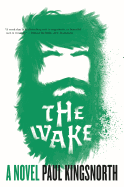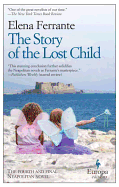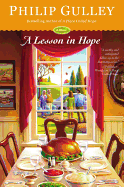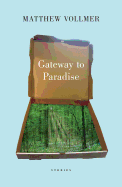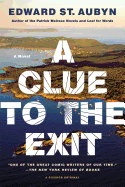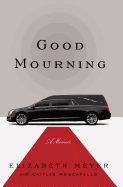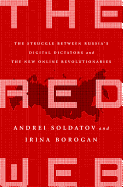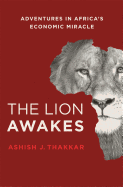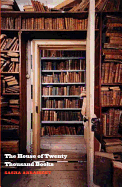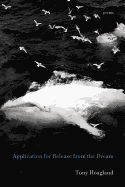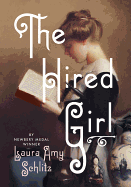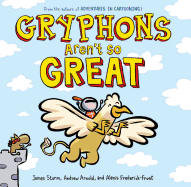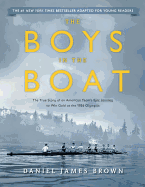Nonfiction
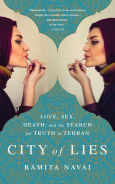 City of Lies: Love, Sex, Death, and the Search for Truth in Tehran by Ramita Navai (PublicAffairs, $16.99)
City of Lies: Love, Sex, Death, and the Search for Truth in Tehran by Ramita Navai (PublicAffairs, $16.99)
In City of Lies, British-Iranian journalist Ramita Navai lifts the traditional Iranian chador to expose the diversity and chaos of Iran's capital. She uncovers the story of modern Tehran with all the drama of a good novel, and her subjects are religious fanatics, prostitutes, drug dealers, political prisoners, transgender radicals and skinny-jeaned, Chuck-Taylored teens.
Hand to Mouth: Living in Bootstrap America by Linda Tirado (Berkley, $16)
When Linda Tirado responded to an online forum question--"Why do poor people do things that seem so self-destructive?"--she had no idea her explanation would go viral and result in her first book, Hand to Mouth. This wry, frank depiction of life as a member of the working poor is a frightening reality from which many Americans are just one misfortune away.
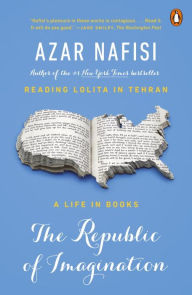 The Republic of Imagination: America in Three Books by Azar Nafisi (Penguin, $17)
The Republic of Imagination: America in Three Books by Azar Nafisi (Penguin, $17)
Inspired by a young Iranian man who believed Americans don't truly care about books, Azar Nafisi (Reading Lolita in Tehran) considers if the privileges Americans enjoy insulate them from the world's great literature, particularly their own. Nafisi explores this "republic" and its connection to American identity through close readings of three classics: The Adventures of Huckleberry Finn, Babbitt and The Heart Is a Lonely Hunter.
Dataclysm: Who We Are (When We Think No One's Looking) by Christian Rudder (Broadway Books, $16)
Rudder combines existing work with his original research, analyzing information from social media and other websites, and organizes his findings into three main categories: the data of people connecting, the data of division and the data of the individual. A book based on statistics could easily be dry and boring, but not with Rudder, a consummate storyteller, at the helm.
Fiction
The Emerald Light in the Air by Donald Antrim (Picador, $16)
All seven short stories in this collection deal with the domestic: couples, husbands and wives, fidelity (or not) and personal failings. In polished prose that's analytical, sharp and concise, Antrim reveals the weaknesses in these fragile characters, who are unable to make simple decisions.
Wolf in White Van by John Darnielle (Picador, $16)
Wolf in White Van tracks backward in time through the life of Sean Phillips, a mid-30s survivor of a horribly disfiguring accident who now lives an introspective, hermetic life managing the players in an elaborate mail-order fantasy game he created during his hospital rehabilitation. It's a story that's labyrinthine but compulsively readable--like a Tom Cruise movie with brains.
Truth Be Told by Hank Phillippi Ryan (Forge, $7.99)
An eviction, a cold case and a suspicious confession stir up trouble in Truth Be Told, Hank Phillippi Ryan's third mystery featuring ace reporter Jane Ryland and police detective Jake Brogan. Ryland juggles a murder investigation, a real-estate scam and the possibility of a relationship with Brogan.
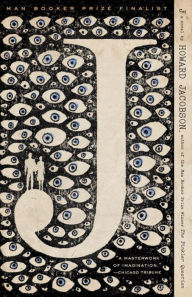 J by Howard Jacobson (Hogarth, $15)
J by Howard Jacobson (Hogarth, $15)
J is a dystopian novel that imagines a futuristic Britain radically altered by a cataclysmic event referred to cryptically as WHAT HAPPENED, IF IT HAPPENED. This is a major novel, a rare work that makes readers think as much as feel--and the feelings that it invokes are uneasy ones.
Gutenberg's Apprentice by Alix Christie (Harper Perennial, $15.99)
German scribe Peter Schoeffer has achieved a modicum of success at the university in Paris, but when his foster father summons him home to Mainz, Peter never dreams that his life and career will be transformed. Instead of continuing as a scribe, Peter begins an apprenticeship studying a brand-new art under a mercurial, passionate man: Johann Gensfleisch, better known as Gutenberg.
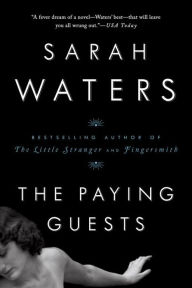 The Paying Guests by Sarah Waters (Riverhead, $17)
The Paying Guests by Sarah Waters (Riverhead, $17)
Sarah Waters has crafted a period domestic drama that mines class differences, then added an illicit love affair between two women. They are happy in their clandestine tryst, until their lives are transformed by a murder and its aftermath, which threatens everything they hold dear. The Paying Guests should establish Waters as one of Britain's best contemporary storytellers.
The Ploughmen by Kim Zupan (Picador, $16)
Set in the emptiness of east Montana, Kim Zupan's debut novel, The Ploughmen, is the story of 77-year-old serial killer John Gload and Deputy Sheriff Valentine Millimaki. Gload is in jail awaiting trial. Recently hired, Val is stuck on third shift to guard Gload and try to coax him to divulge where he buried his many victims.
Malice by Keigo Higashino, translated by Alexander O. Smith (Minotaur, $15.99)
A bestselling novelist is found dead inside his locked office, and police detective Kyochiro Kaga quickly zeroes in on the prime murder suspect and gets a confession, though he finds some details in the story at odds with the evidence. Worse, the killer refuses to give a motive, and without one, Kaga doesn't think he can get a conviction.
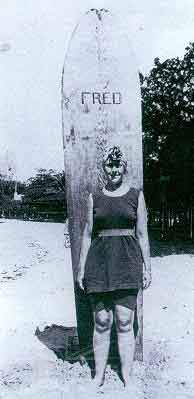





 J
J The Paying Guests
The Paying Guests